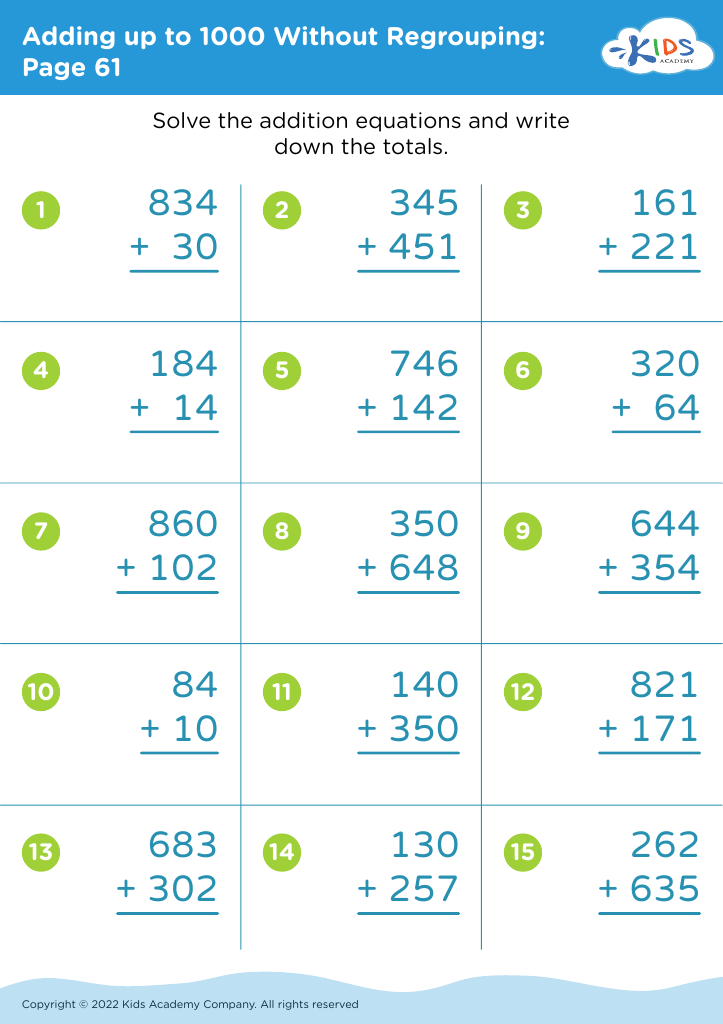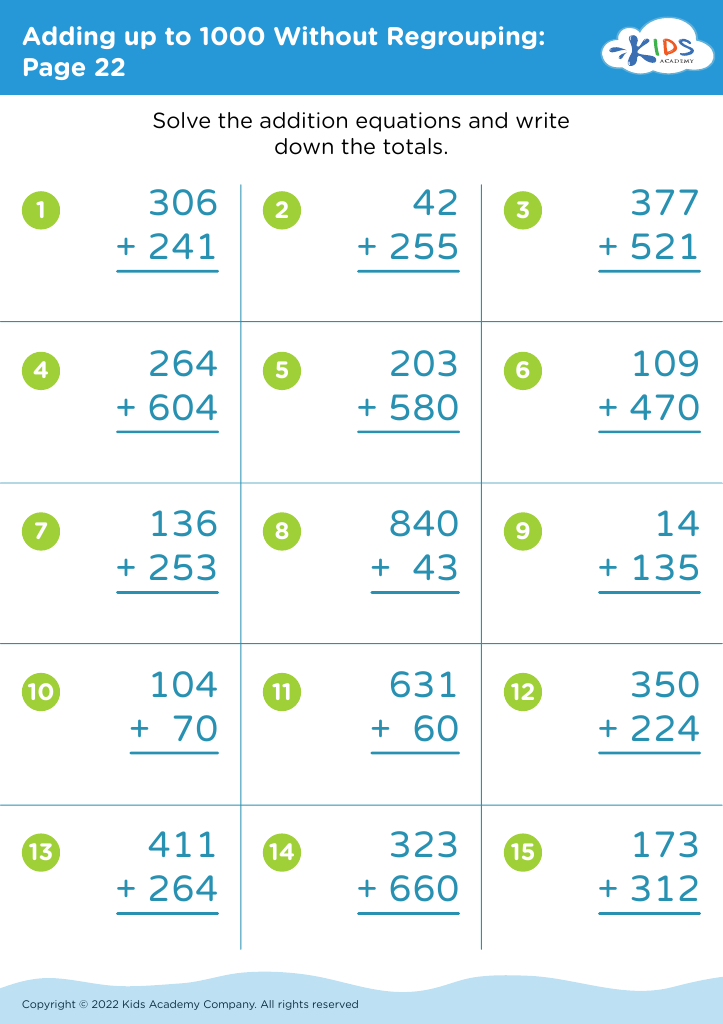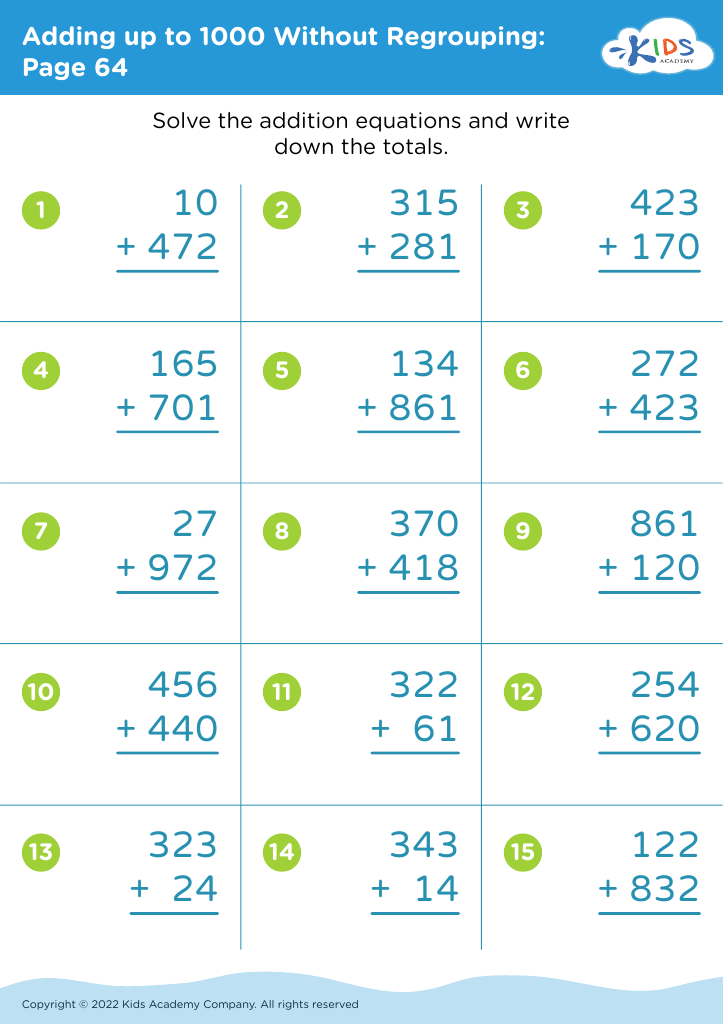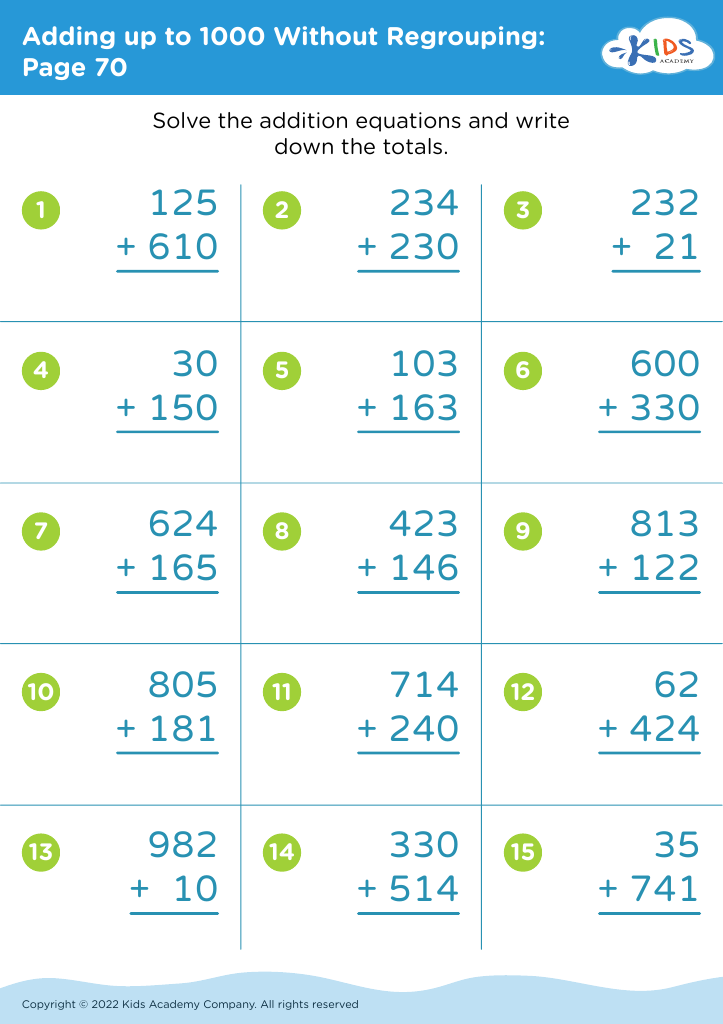Counting skills Adding up to 1000 Without Regrouping Worksheets for Ages 5-9
10 filtered results
-
From - To
Boost your child's math abilities with our Counting Skills: Adding up to 1000 Without Regrouping Worksheets, specially designed for ages 5 to 9! These engaging worksheets offer a fun and educational way for young learners to practice their addition skills without worrying about regrouping. Each worksheet is thoughtfully crafted to build confidence and enhance counting proficiency, helping kids master math basics while having fun. Ideal for both classroom and home use, these printable resources support parents and teachers in fostering essential math skills. Start your child's journey to arithmetic success with Kids Academy's expert-designed worksheets!
Counting skills and learning to add up to 1000 without regrouping are crucial foundational skills for children aged 5-9. At this age, kids are in their formative years of mathematical understanding. Developing solid counting skills helps them understand number sequences, numerical relationships, and the fundamentals of arithmetic. Mastering addition up to 1000 without regrouping enables them to perform basic calculations, which are essential for everyday tasks and for building more complex math skills, such as subtraction, multiplication, and division.
Focusing on these skills also promotes cognitive development, including memory, concentration, and logical thinking. These attributes are not only essential for math but are transferable to other subjects and activities. Furthermore, confidence gained from mastering these skills can boost a child’s overall attitude towards learning and school, setting a positive precedent for future education.
For parents and teachers, it's important to recognize that proficiency in these skills serves as the groundwork for later mathematical concepts and problem-solving techniques. Investing the time and energy in ensuring children at this age group grasp these basics thoroughly will scaffold their academic journey, making the transition to more complex mathematical concepts smoother and less intimidating. This will ultimately foster a lifelong appreciation and competence in mathematics.




















